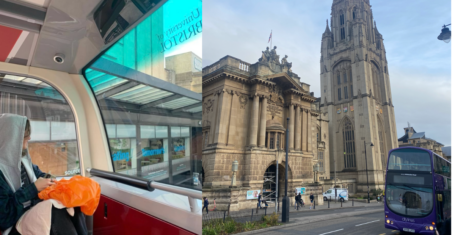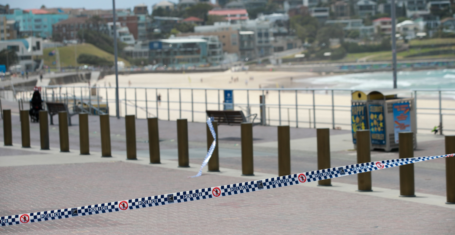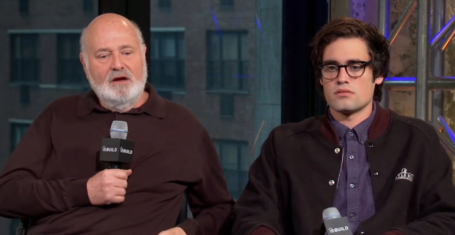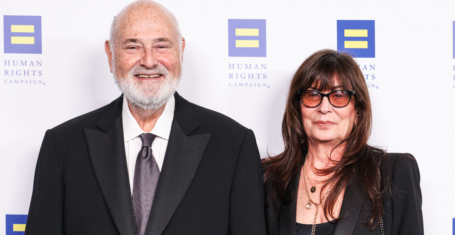
London students stage walkout against gender violence and ‘Tory culture war’
Students from UCL and LSE demanded their universities rejoin Stonewall and called for a stronger student movement
On the 24th November, UCL Student Socialist Alternative, LGBT Network, and Gender and Feminism Society staged a walkout against gender violence and the erosion of transgender rights on campus.
The student croups also delivered a letter of “over 130 signatures” to the UCL Provost’s office, “demanding UCL to rejoin Stonewall and provide funds for survivors of abuse.”
The walkout began at 2pm, with speeches from student representatives and the distribution of picket signs and transgender flags on UCL’s Main Quad in front of the Portico building.
The protest was held a day prior to the International Day for Elimination of Gender-based Violence.
UCL was the first UK university to disaffiliate from the LGBTQ+ organisation Stonewall in December 2021, citing a need for academic freedom and freedom of speech regarding work on gender and sex identity, with LSE also officially cutting ties with Stonewall in January 2023.
Ongoing criticism of this decision was a key factor in the walkout, with the societies involved making three demands:
• “Rejoin Stonewall – rank and file control of our universities by students and staff!”
• “Cut millionaire management pay! Fund LGBTQIA+ inclusive services and support for survivors of abuse”
• “Protest Tory driven attacks on trans people, refugees, abortion rights, which all represent the attempts to blame the crisis of the capitalist system on the most oppressed.”
In a statement, UCL Student Socialist Alternative linked the ongoing dispute on campuses to a broader political culture under the Conservative government.
The group said: “Any and all attack on trans rights, women’s rights, and Pro-Palestinian Action at UCL is part of the broader Tory culture war trying to diverge focus from their system in crisis, and onto all oppressed peoples.”
Most Read
LSESU LGBTQ+ Officer, Hannah, also gave a speech in solidarity with the UCL societies, saying in a later statement that the decision taken by LSE and UCL to disaffiliate with Stonewall was a “shameful” one and called the universities to “reverse both disaffiliations.”
The walkout’s message was clear: “Nobody is free until everybody is free!”
Students were also heard chanting “Trans rights – Women’s rights. Same struggle, same fight!”
Ruby, the president of the Gender and Feminism Society, called for a stand against the “toxic culture that allows for acts like this to happen within our university walls.”
She spoke about how, when representing the society at UCL’s welcome fair, a “group of boys threw a half-eaten banana covered with a condom” at them before running away.
After reporting the incident, Ruby expressed disappointment with UCL only offering a Zoom meeting to “talk about how [she] was feeling about the incident.”
Ruby also called for “real changes that show dedication to making our campus safe from gender-based violence and discrimination”.
She emphasised that the walkout was a “declaration that we will not accept a university that turns a blind eye to the suffering of its students”.
A UCL spokesperson said: “As soon as this appalling incident was reported to us, it was immediately triaged to a dignity advisor and managed.
“We urge anyone who has been the subject of, or has witnessed any such similar incident to inform us by using the online Report + Support tool.
“This means we can investigate the incident and enables students and staff to contact an advisor to talk about their experiences and what to do next. This can include a same-day appointment, and many of our advisors have been specifically trained in supporting survivors or in supporting with matters of personal safety.”

Wren, a speaker from UCL Student Socialist Alternative, criticised the political system more broadly.
They said: “Far-right politicians politicise our bodies and our right to choose, our right to self-identify, and basically our right to live but tell us to shut up and not be political when those same bodies and rights are violated in inexplicable ways.”

Wren portrayed the fight for re-affiliation with Stonewall as a crucial first step in the development of stronger student organisation.
They added that such a movement would fight for “democratic control of our university… [to] elect, hold accountable and decide the management and curriculum of the university.”

After the speeches, the walkout turned into a march through the UCL Wilkins Building and ended with a bigger Palestinian freedom protest taking place at SOAS.
These struggles are interdependent for these societies in the fight against policies which impede the freedom and safety of transgender people and women, and some speakers linked the two.
Brooke, a member of the movement ROSA Socialist Feminists, criticised the ironic “tendency to infantilise women” during wartime.
She said that the media focuses on the deaths of “women and children” while women and queer people “organise and fight back and lead marches while staring down the barrel of gender violence.”
An LSE spokesperson said: “LSE is committed to ensuring we have an inclusive culture that both welcomes and supports trans staff and students and promotes an environment that is free from discrimination. This is outlined in our Policy on Trans Staff and Students and underpinned by our LSE Anti-Bullying and Anti-Harassment Policy.”
A UCL spokesperson said: “The safety and wellbeing of our brilliant community of students and staff at UCL is of utmost importance to us, so we are continually seeking new ways to make our campus an environment where we can all thrive.
“Harassment, violence and abuse have no place on our campus, but when our staff or students sadly are affected, UCL has a wide range of comprehensive support services available.
“UCL has an unwavering commitment to advancing the inclusion of trans, non-binary and gender non-conforming members of our community, and we are determined that UCL will become an environment in which everyone is able to be themselves, and is respected as a valued member of the university. We have policies and protections in place for LGBTQ+ staff and students and are continually listening to our community to identify further supportive actions we can take.
“In 2022, we launched our Gender Expression Fund that provides real and practical support to students who may be particularly vulnerable to marginalisation and prejudice. And a few weeks ago we were proud to launch our new LGBTQ+ action plan, spearheaded by a diverse team of students and staff who comprise the LGBTQ+ Equality Implementation Group.”
Related articles recommended by this author:
• Students demand SOAS reverse suspensions of students involved in pro-Palestinian rally
• University College London launches first ever LGBTQ+ action plan
• ‘Vindictive and insensitive’: Students and staff slam UCL decision to cut ties with Stonewall



















